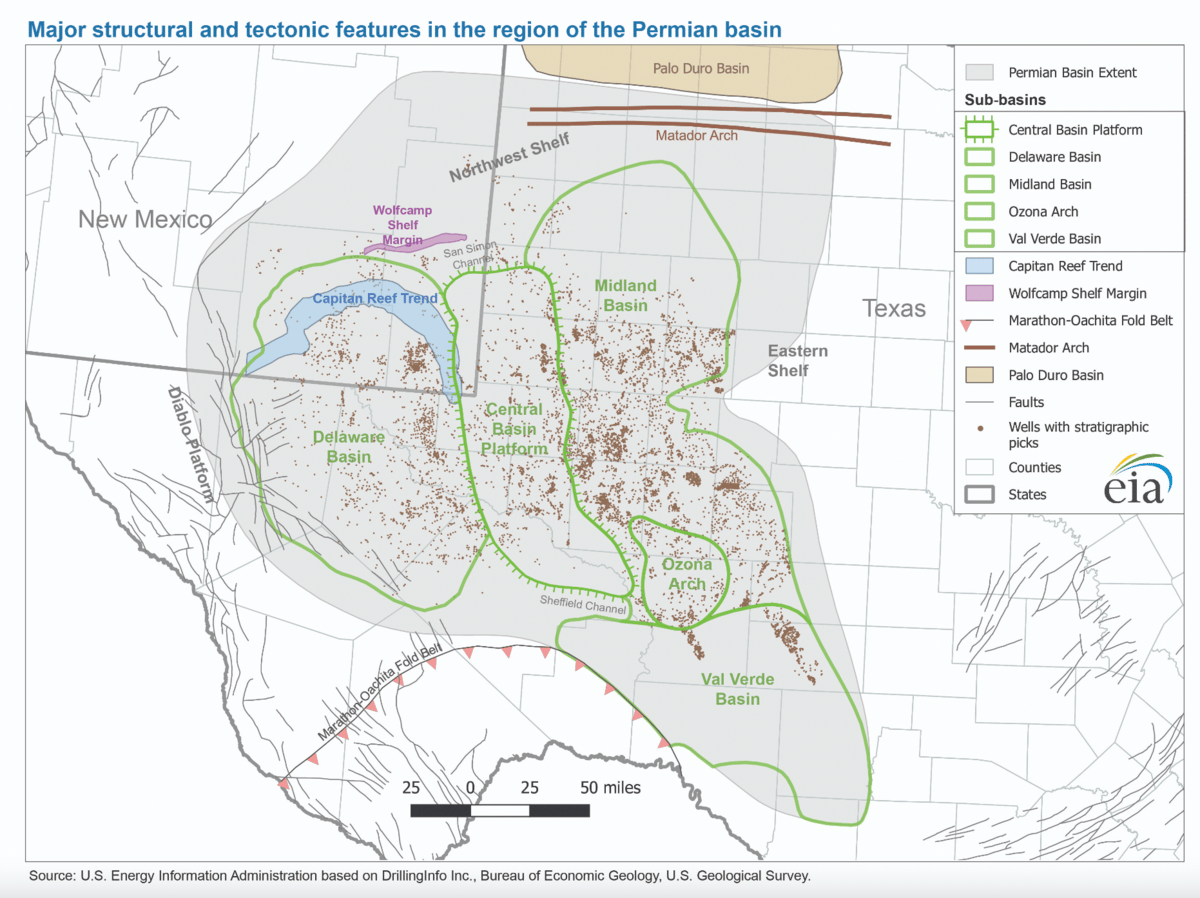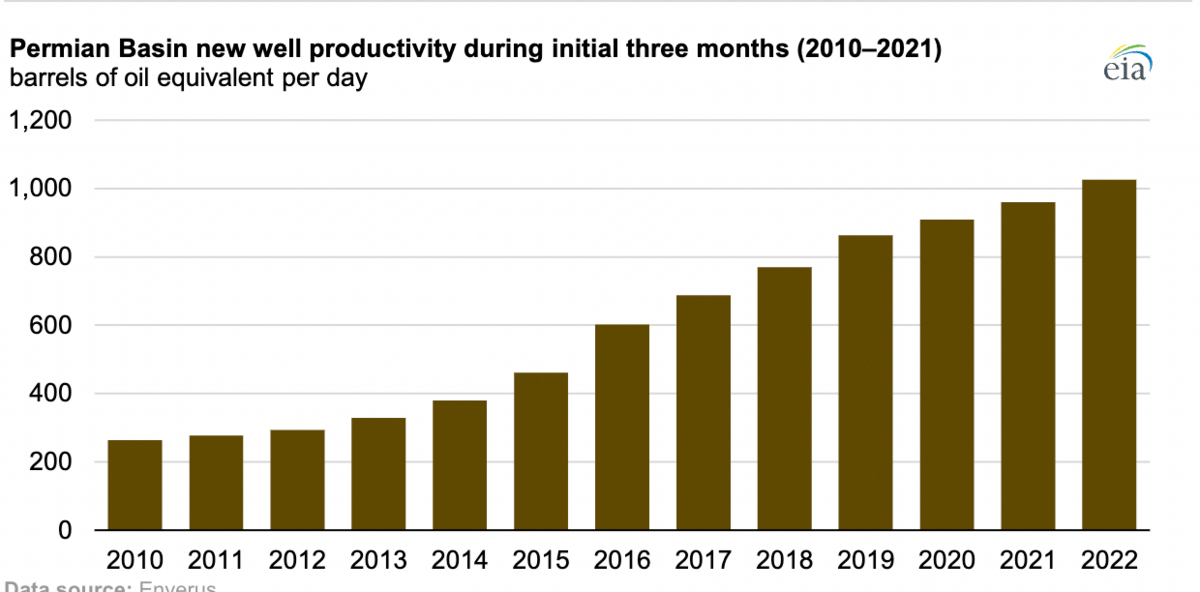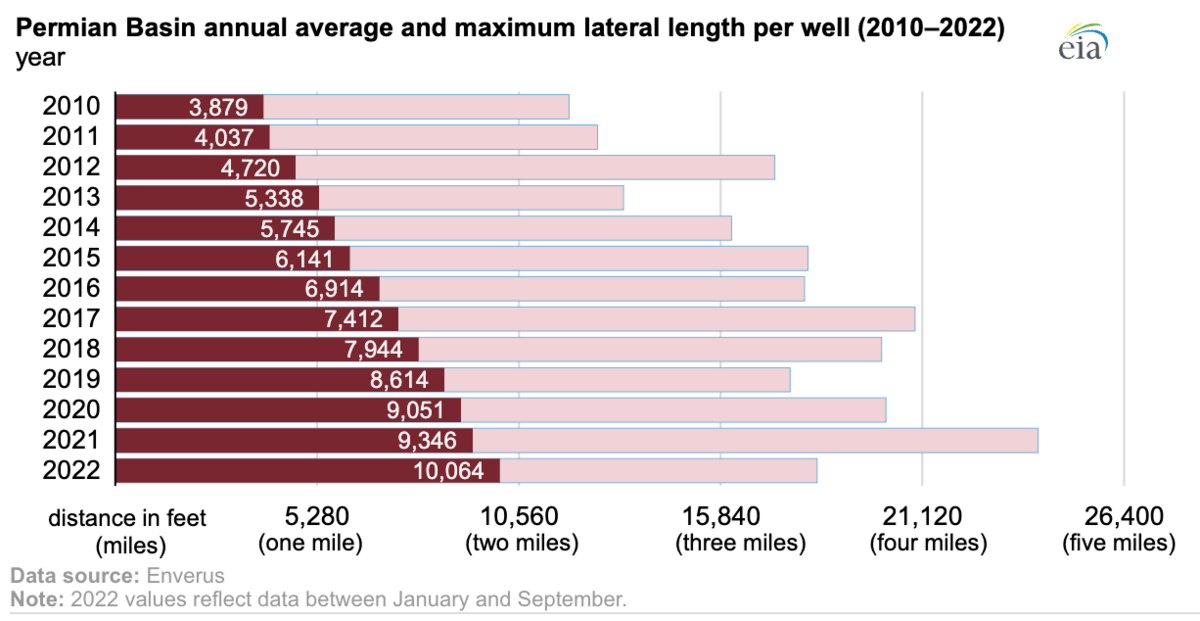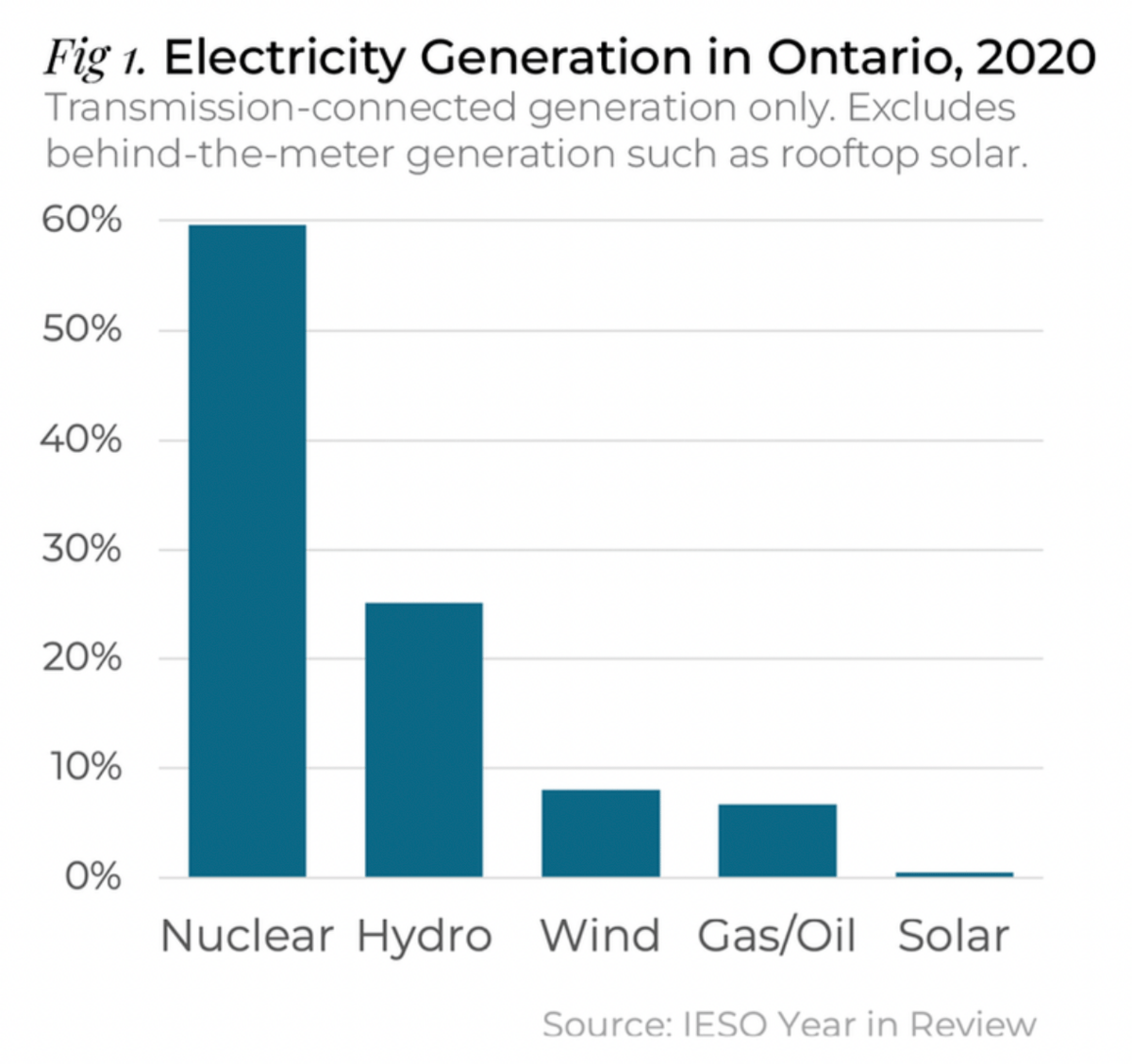New Tech Grew Permian Output
The Permian Basin, which overlaps parts of Texas and New Mexico, is one of the largest oil and gas production sites in the entire world. And according to the Energy Information Administration, technological improvement has unleashed the region's productivity over the last ten years.
"The Permian Basin has become more productive because of the technological advancements in drilling and completion techniques, which allow operators to economically extract hydrocarbons from the low permeability reservoirs," the EIA reports.

What tech in particular? "Improved geological understanding, known as subsurface delineation, helps operators place wells to optimize well spacing in the most productive areas," the EIA reports. Each area of the Permian, including its subregions (Midland and Delaware), has its unique thickness and depth, so a more accurate read of a region's geography helps drillers make more informed decisions.

But the real technological take-off was horizontal drilling. Vertical drilling--simply drilling downwards into the ground--has existed in the region for decades. When horizontal drilling debuted in 2010, the shale boom began. "Since 2010, advances in hydraulic fracturing and horizontal drilling led to rapid production growth. The number of new horizontal wells increased to 4,524 in 2021, compared with 350 in 2010," the EIA reports. "In June 2022, the Permian Basin accounted for about 43% of U.S. crude oil production and 17% of U.S. natural gas production (measured as gross withdrawals)."

It's hard to overstate how incredibly productive the Permian is. The region's productivity stems from its low operating costs, its nearness to the Gulf of Mexico and its terminal, and its access to oil field services.
"The average productivity of new wells in the Permian Basin has grown for 12 consecutive years," reports the EIA. "Core areas of the Permian Basin, and its Delaware and Midland subbasins, contain multiple stacked shale formations. By 2021, each new well drilled in the Permian Basin was producing an average of 960 barrels of oil equivalent per day."
Pickering Nuclear Plant: Saved?
Ontario's Pickering nuclear power plant, slated for decommissioning rather than refurbishment in 2025, was just granted a one-year life extension.
"The Ontario government has announced its support for Ontario Power Generation’s (OPG) continued operation of the Pickering nuclear power station for an additional year to 2026 – with the possibility of additional extensions of 30 years," reports Nucnet.
Pickering produces about 14% of Ontario's generation capacity. It played a huge role in how Ontario phased out its coal plants for clean nuclear generation while transitioning the coal workers into the nuclear industry. According to a report by Canadians for Nuclear Energy, "The restart of six CANDU nuclear units—four at Bruce Nuclear Generating Station and two at Pickering Nuclear Generating Station—provided 90% of the electricity needed to kick coal off the power grid by 2014."
"This is a historic turn around. We've always said that it's gas versus nuclear and you 'Pickering.' Well, nuclear won and so have workers and consumers. We're about to save Ontario $500 million and several thousand jobs just by extended the life of the plant by one year," Dr. Chris Keefer, President of Canadians for Nuclear Energy, and host of the Decouple podcast, told Grid Brief.

But does this extension mean Pickering will be saved in the longrun?
Dylan Moon, the lead author on Canadians for Nuclear Energy's report on Pickering, told Grid Brief, "The government’s reversal of a decade-old plan to close Pickering is a sign that even strong policy and corporate momentum can be overcome with good arguments, proper networking, and persistence."
But, Moon told us, that doesn't mean the plant is completely out of the woods. "Going forward, the Canadian nuclear regulator still has to approve the extension and any refurbishment plans, which will involve public hearings sure to attract some familiar dissenting voices. Canadians for Nuclear Energy is also eyeing other policy goals to push the case for refurbishment forward, such as the overdue amendment to include nuclear energy in the province’s Green Bond Framework," he concluded.
France to Traders: Return Millions of Diesel Barrels
France is trying to restock its diesel stockpiles in the run up to what looks to be a tough winter in Europe.
"The French government wants companies to replenish fuel inventories that were released around June as part of a globally co-ordinated stock-draw. The idea is to refill during October and November, a person familiar with the matter said, without specifying a volume," reports Bloomberg. A government official confirmed the information.
France is a large importer of diesel from Russia, which makes the upcoming sanctions that much harder for it to bear. Plus, most of Europe's shipping and transport fleets run on diesel. Diesel shortages could rattle Europe's internal supply chains.
The current strikes at French refineries have made the diesel issue more urgent. "Workers’ strikes at multiple French refineries, along with a recent fire at TotalEnergies SE’s Feyzin plant, are also curtailing France’s domestic fuel production, compounding the supply challenge," reports Bloomberg.
France isn't the only company trying to stockpile--both the Germans and the Dutch have issued tenders for barrels of diesel.
Like what you're reading? Click the button below to get Grid Brief right in your inbox!
Conversation Starters
Brookfield Asset Management's Mark Carney recently said that net-zero cannot make sense without nuclear. “There’s no transition that works without nuclear, full stop,” Carney told investors last Thursday. Brookfield acquired Westinghouse four years ago. Carney's statements signal a gathering confidence in the nuclear industry after decades of demoralization.
Norway is hardening the defenses around its energy sector after last week's attacks on the Nordstream pipelines. "Norway is posting soldiers from its Home Guard to protect energy infrastructure as Western Europe's largest oil and gas producer, and its Scandinavian neighbors are increasing security following the suspected sabotage of the Nord Stream pipelines in the Baltic Sea last week," reports Oilprice.com.
The UK's energy regulator, Ofgem, has grim tidings for this winter. "Due to the war in Ukraine and gas shortages in Europe, there is a significant risk that gas shortages could occur during the winter 2022-23 in Great Britain. As a result, there is a possibility that Great Britain could enter into a gas supply emergency," the agency told the BBC.
Crom's Blessing
